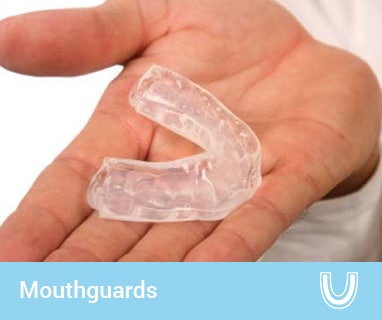 Mouth guards provide protection to teeth from injury. Injury to teeth generally happens during high-contact sports or due to teeth-grinding during sleep. Mouth guards are also called mouth protectors and they help to reduce the impact of injury to the mouth area.
Mouth guards provide protection to teeth from injury. Injury to teeth generally happens during high-contact sports or due to teeth-grinding during sleep. Mouth guards are also called mouth protectors and they help to reduce the impact of injury to the mouth area.
Mouth guard is an essential piece of athletic gear and is beneficial as it forms a part of standard sports equipment. While sports such as boxing have a higher risk of injuries, sports like gymnastics and skating may experience dental injuries as well.
Mouth guards help lessen the impact of injuries. They also help prevent chipped or broken teeth, nerve damage to a tooth, or even tooth loss. If the injuries are caused due to grinding of teeth, then dentists would typically recommend a nocturnal bite plate or bite splint. This helps prevent tooth damage.
Accidents can happen when you least expect it. Wearing a mouth guard will significantly reduce the risk of serious mouth injury by dispersing the impact force. Too often teeth are knocked out, pushed out of position or fractured when a mouth guard is not worn during sports. During high-impact and aggressive sports, you know that there is a high risk of injury. So it makes sense to wear a mouth guard while playing.
Types of mouth guards
- Stock mouth guards – these are ready to wear guards and are easily available.
- Boil and Bite guards – also easily available. They need to be placed in hot water to make them soft and then placed and shaped around the teeth.
- Custom fitted guards – these are individually designed, done by dentists after taking impression of teeth.
Dentists at Coomera Dental Centre can construct a mouth guard directly from a mould of your teeth. According to each client’s needs and requirements, dentists will create a custom mouth guard that will provide maximum protection for teeth.
We will also provide you with all the required information on taking care of mouth guards.
General tips to take care of your mouth guard
- Ensure regular cleaning of mouth guards with cold water or rinsing them before and after use
- It should be kept in a firm and perforated container to reduce damage
- They need to be replaced if there are any holes or tears
- Regularly checking with dentists will also help understand if it needs to be replaced
